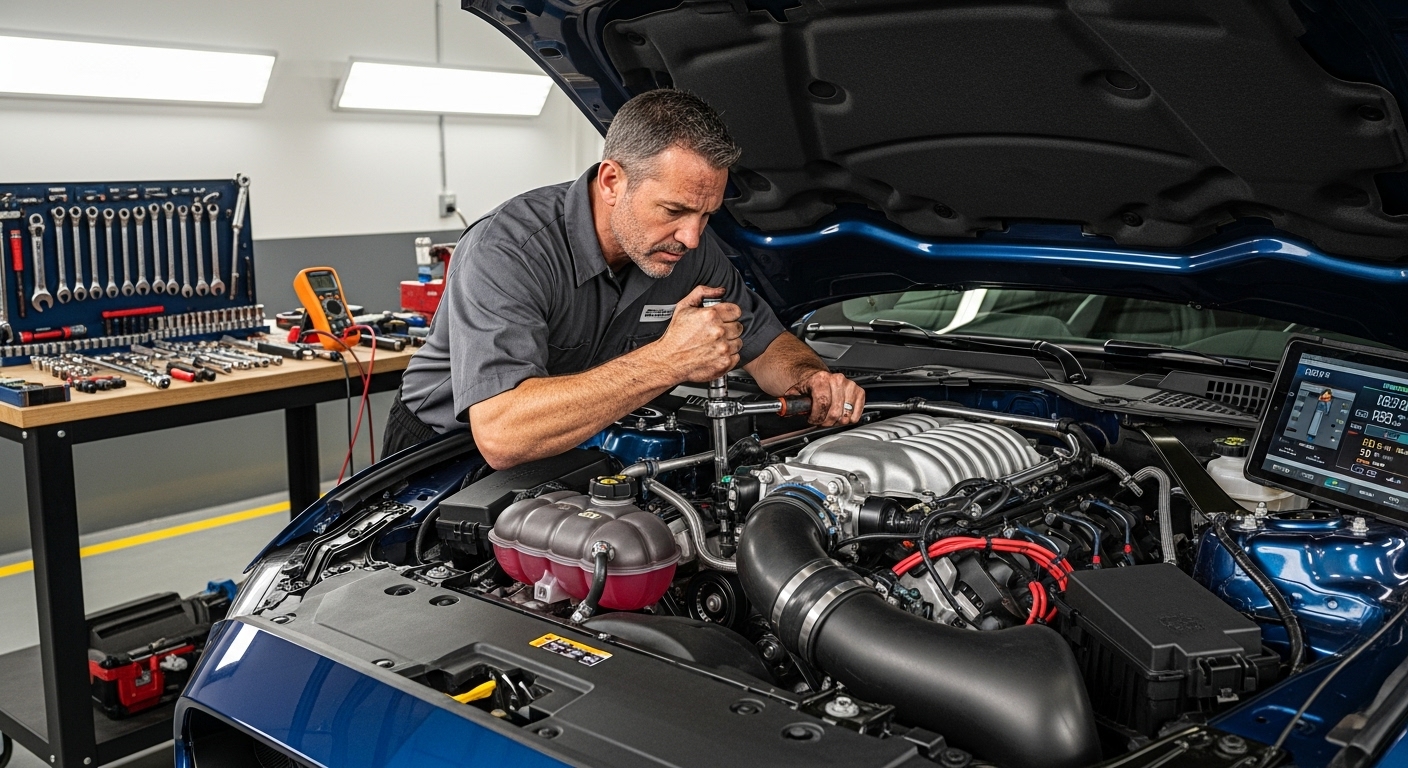The roar of a modern muscle car is more than just noise; it’s a symphony of engineering, a testament to power, and an invitation to the open road. But what if you could orchestrate that symphony to play even louder, to push the boundaries of performance beyond the factory settings? In 2025, the pursuit of automotive excellence has led to a surge in innovative car performance hacks and tuning techniques, especially for modern muscle cars. This isn’t just about speed; it’s about precision, control, and unlocking the hidden potential within your machine.
This blog post will delve into the essential tuning hacks that can transform your modern muscle car into a true performance beast. We’ll explore everything from ECU remapping and forced induction upgrades to suspension enhancements and aerodynamic tweaks. Whether you’re a seasoned gearhead or a novice enthusiast, this guide will provide you with the knowledge and inspiration to take your car’s performance to the next level. Get ready to unleash the raw power and refine the driving experience of your modern muscle car.
Understanding ECU Remapping for Optimal Performance
The Engine Control Unit (ECU) is the brain of your car, dictating everything from fuel injection to ignition timing. Factory ECUs are typically programmed with conservative settings to ensure reliability and compliance with emissions regulations. However, these settings often leave significant performance on the table. ECU remapping, also known as chipping or tuning, involves modifying the software within the ECU to optimize these parameters for increased power, torque, and throttle response. This can be achieved through various methods, including reflashing the ECU with a custom tune or installing a piggyback ECU that intercepts and modifies the signals from the factory unit.
When considering ECU remapping, it’s crucial to work with a reputable tuner who understands the specific characteristics of your engine and can tailor the tune to your driving style and performance goals. A well-executed ECU remap can result in significant gains in horsepower and torque, as well as improved fuel economy. However, it’s essential to be aware of the potential risks, such as increased wear and tear on engine components and the possibility of voiding your car’s warranty. Always prioritize safety and reliability when making modifications to your car’s ECU.
Furthermore, the landscape of ECU tuning is constantly evolving, with new software and hardware solutions emerging regularly. Staying informed about the latest advancements in ECU technology can help you make informed decisions about how to optimize your car’s performance. Consider joining online forums and communities dedicated to automotive tuning to learn from experienced tuners and enthusiasts. Remember, knowledge is power when it comes to unlocking the full potential of your modern muscle car.
Forced Induction Upgrades Superchargers and Turbochargers
For those seeking a substantial boost in power, forced induction upgrades are a popular choice. Superchargers and turbochargers are devices that compress air and force it into the engine, allowing it to burn more fuel and produce more power. Superchargers are typically belt-driven and provide instant boost, while turbochargers are exhaust-driven and offer greater efficiency but may suffer from turbo lag. The choice between a supercharger and a turbocharger depends on your specific performance goals and driving preferences. Superchargers are often preferred for their linear power delivery and ease of installation, while turbochargers are favored for their greater potential for high-end power.
Installing a forced induction system requires careful planning and execution. It’s essential to choose a kit that is specifically designed for your engine and to ensure that all necessary supporting modifications are made, such as upgrading the fuel system and installing a boost gauge. Proper tuning is also crucial to ensure that the engine is running safely and efficiently. Working with a qualified mechanic or tuner who has experience with forced induction systems is highly recommended. With the right setup, a supercharger or turbocharger can transform your modern muscle car into a true powerhouse.
Moreover, forced induction technology continues to advance, with new designs and materials constantly being developed. Variable geometry turbochargers, for example, offer improved responsiveness and reduced turbo lag compared to traditional turbochargers. Electric superchargers are also gaining popularity, offering instant boost without the parasitic drag of a belt-driven supercharger. As forced induction technology evolves, the opportunities for enhancing the performance of modern muscle cars will only continue to expand.
Suspension Enhancements Improving Handling and Control
While raw power is undoubtedly exhilarating, it’s equally important to have a suspension system that can effectively transmit that power to the road. Suspension enhancements can significantly improve your car’s handling, stability, and overall driving experience. Upgrading to performance-oriented springs, shocks, and sway bars can reduce body roll, improve cornering grip, and provide a more responsive and controlled ride. Lowering the car’s ride height can also improve its center of gravity and aerodynamic efficiency.
When choosing suspension components, it’s important to consider your driving style and the intended use of your car. For street driving, a set of high-quality adjustable shocks and springs can provide a balance of comfort and performance. For track days or competitive events, a more aggressive setup with stiffer springs and shocks may be necessary. It’s also important to ensure that all suspension components are properly aligned and adjusted to achieve optimal performance. Consulting with a suspension specialist can help you choose the right components and fine-tune your car’s suspension for maximum handling and control.
Furthermore, advancements in suspension technology, such as adaptive dampers and air suspension systems, offer even greater levels of control and adjustability. Adaptive dampers can automatically adjust the damping force based on road conditions and driving inputs, providing a smooth and comfortable ride while still delivering excellent handling performance. Air suspension systems allow you to adjust the car’s ride height on the fly, providing increased ground clearance for street driving and a lower ride height for improved handling on the track. These advanced suspension technologies can significantly enhance the driving experience of modern muscle cars.

